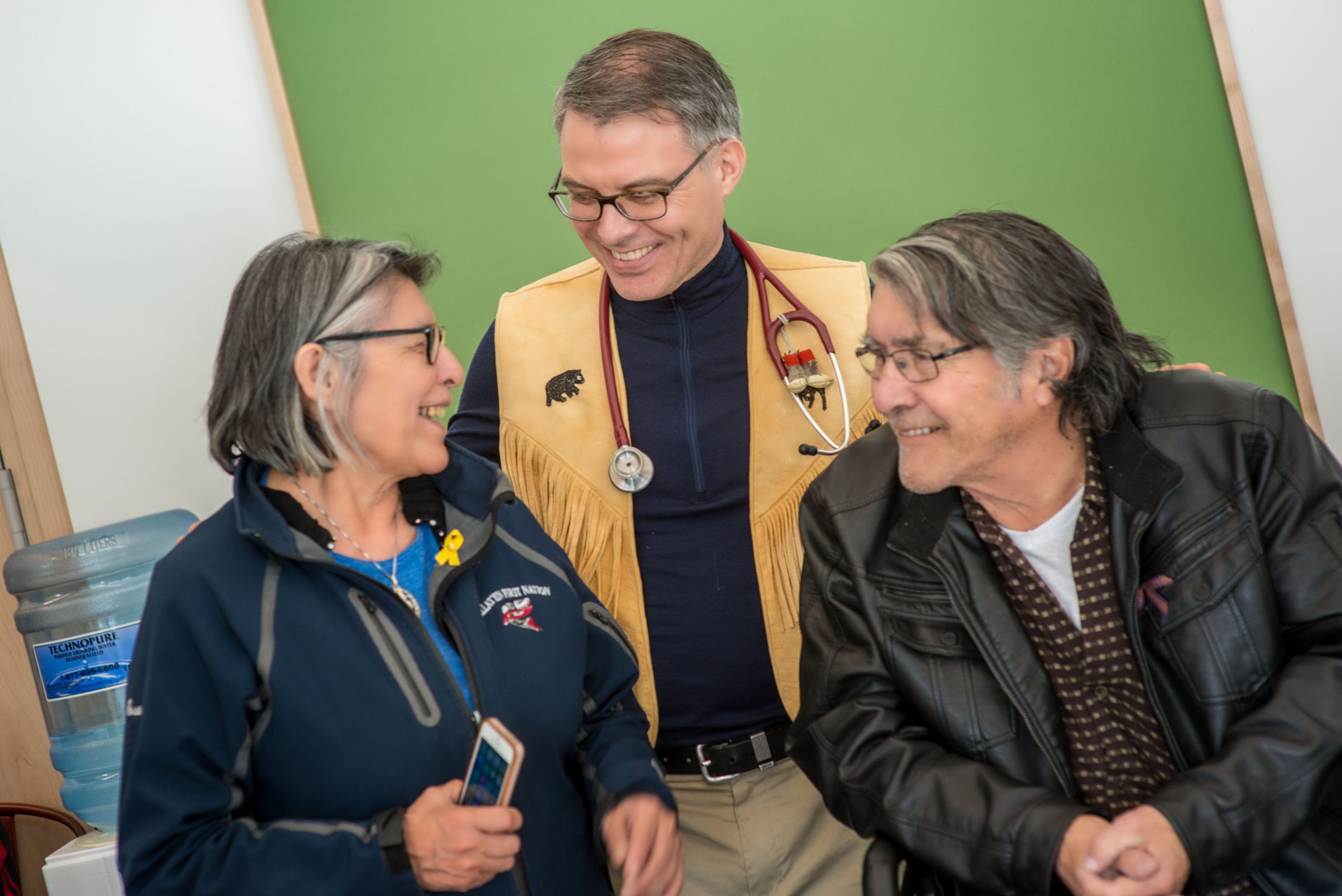A conversation with Dr. John Pawlovich, Rural Doctors’ UBC Chair in Rural Health

Many communities across British Columbia are geographically far away from large health centres, placing them at a disadvantage when it comes to accessing primary, specialty and emergency healthcare.
Dr. John Pawlovich, the newly-appointed Rural Doctors’ UBC Chair in Rural Health, is leading the provincial effort to bridge access to healthcare for rural, remote and Indigenous communities through innovation in education, training and research.
Here Dr. Pawlovich discusses his aspirations for expanding equity and access to healthcare for British Columbians living in rural and remote areas by leveraging technology in new ways, enhancing support for healthcare providers, and creating new opportunities for medical trainees to learn and experience life and professional practice in these communities.
Why is it critically important to strengthen healthcare for residents of rural B.C.?
Residents of rural, remote and Indigenous communities face much greater healthcare disparities than other residents of B.C. The problems are most pronounced in Indigenous communities, where there’s been a shameful history of lack of equity to access to healthcare resources.
Whether that’s accessing primary care services through a family doctor, specialist services or timely emergency healthcare services, those inequities naturally exist in our healthcare system. That’s one of the reasons life expectancy is lower in rural areas and why people perhaps choose not to live in rural areas. We’ve seen migration to urban areas in this province, but also around the world.
Both community members and healthcare providers in rural areas need support. That support has been lacking historically and contributes to negative consequences for health-related outcomes, including challenges with recruitment, retention and burnout of health professionals in these areas.
In your new role, how will you expand use of technology to address healthcare disparities?
Technology can help bridge current and historical gaps by bringing access to patients in rural and remote communities. It is being used in new ways to address disparities for both patients and the healthcare providers who support them. My new role creates opportunities to evaluate use of technology at the health systems level.
Rural citizens often lack access to a family doctor, specialty care, laboratory investigations and imaging. A year into this pandemic, where virtual health is much more widely used, rural patients can now see a specialist quite easily. Also, specialized technologies such as point of care ultrasound, remote sensors and home monitoring equipment are capturing medical information from patients and transmitting it to specialists located in different geographic areas.
Most recently, I’m involved in UBC’s Done Transport Initiative to enhance the availability of medical supplies in rural and remote Indigenous communities. We have selected a drone provider and community consultations are underway. This is an opportunity to leverage emerging technologies to help bridge that geographical gap. For example, we could transport COVID-19 swabs in and out of an Indigenous community on lockdown, so they reach the central laboratory for analysis and patients receive timely results.
Healthcare providers going out to rural, remote and Indigenous communities face a daunting task. They often work in isolation, trying to be many things to many people. It’s often overwhelming and a historical barrier to recruitment and retention. Technology allows for the creation of a virtual team that can wrap itself around healthcare providers. Whether they’re in Atlin or Port Hardy, when a nurse or physician with a very sick patient needs assistance in a very swift, effective and coordinated manner, a virtual team could be at the bedside to collaborate on care.
Moving forward, we need deeper learning through research and introducing technology to support patients and healthcare providers in communities. We also want to inspire more research that’s driven from a northern perspective, to understand how technology integrates in an effective and safe way in rural communities around the province.
How will you enhance training of UBC medical students and residents?
Historically, training of medical students happened in large centers, and that was the context of their learning years. Nearly two decades ago, UBC took a great step forward and created Canada’s first fully-distributed medical program that hosts medical students in Prince George, Kelowna, Victoria and the Fraser Valley, in addition to Vancouver. I would like to continue to advance this model of distributed learning, so it’s even more focused on community-based learning in remote regions of the province. Learners need to experience life in communities, and they can be supported in new ways with technology and instructors on the ground.
I personally aspire to create opportunities for more medical residents to experience greater professional autonomy in rural and remote communities, with virtual support from a mentor or instructor, as they get closer to completion of their training. Some family practice and pediatrics residents have had these experiences, and I plan to work with more specialist residency programs to help residents appreciate what it feels like to collaborate with virtual inter-professional healthcare teams in the context of professional autonomy. I think this concept is really exciting.
In five years, what do you hope will be your main contributions as the rural chair?
I hope my voice of advocacy is heard in an effective manner across the province and perhaps over the mountains outside this province. That advocacy speaks to our unrelenting pursuit of equity and access to healthcare for all British Columbians and support for healthcare providers in rural, remote and Indigenous communities. That is the primary goal of my work as the Rural Doctors’ UBC Chair in Rural Health.
To learn more about supporting rural health through UBC, please contact Lisa Slater at lisa.slater@ubc.ca or Stephanie Cardwell at stephanie.cardwell@ubc.ca.